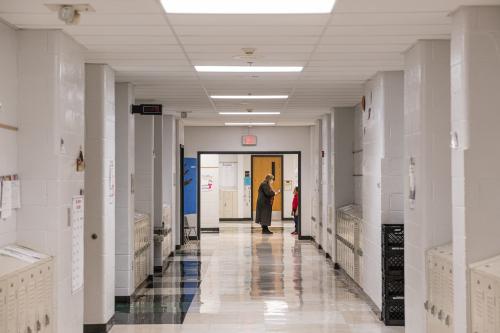Michael Lewis is a brilliant writer who has brought clarity and insight to the sometimes arcane worlds of Wall Street, baseball, and parenting. In his latest book, he surveys fallout from the 2008 financial crisis in exotic locales such as Greece, Iceland, and California. Uh oh.
Dedicated readers of this blog know that I have something of a soft spot for my home state and for local governments in general. So it was tough sledding for me to get past the opening paragraphs of an excerpt from Lewis’ book in Vanity Fair. There are some errors of fact and omission, including this one:
“[In December 2010] U.S. state and local governments faced a collective annual deficit of roughly half a trillion dollars.”
No. In December 2010, as budget officers prepared their fiscal year 2012 budgets, states faced a collective shortfall of $100 billion. In the three fiscal years since the start of the recession, they had taken actions to close an estimated $430 billion worth of gaps. That makes a cumulative shortfall of more than $500 billion after the worst revenue plunge since the Great Depression. It is misleading to characterize this as an annual and potentially recurring gap.
Lewis goes on to defend Meredith Whitney’s now infamous prediction of “50 to 100 sizable [municipal] defaults, [maybe] more” amounting to “hundreds of billions of dollars.” He argues that she did not specify a time horizon (always key to a good forecast) so shouldn’t be judged because defaults are coming in at only about $1 billion this year, a quarter of last year’s level, and as usual they are concentrated in health care and housing entities not cities and counties.
Lewis also suggests Whitney was referring to not defaults but local government finances more generally in the statement: “It’ll be something to worry about in the next 12 months.”
Okay, I’ll buy that. Indeed, a recent survey from the National League of Cities confirms that city finance officers are feeling squeezed as state aid evaporates and property taxes start to drop. They are making tough choices, including raising fees, cutting services, and delaying capital projects. Meredith Whitney calls these “defaults on social contracts.” Others might call it governing.
In any event, Lewis’ piece may be one of those cases where the facts get in the way of a larger story. He rightly points out that the country is built on regional economies, some which are thriving and some which are not. He’s also right that states have the ability to “push their problems down to counties and cities… where American life [is] lived.”
Perhaps most importantly, he conveys that budgeting is all about tradeoffs—prison guards versus professors, library hours versus cops, etc. Lewis recognizes that there are heroes in local government, like Vallejo fire chief Paige Meyer who is unafraid not only to run into a burning building but also to “[sit down and make] a list of ways to improve the department…. measure things that hadn’t been measured… [and] rethink firefighting.” I just wish he had interviewed more of them than the doomsayers.
The Brookings Institution is committed to quality, independence, and impact.
We are supported by a diverse array of funders. In line with our values and policies, each Brookings publication represents the sole views of its author(s).



Commentary
Op-edSo Wrong It’s Right?
October 21, 2011